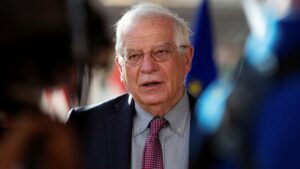
The volume of shares outstanding globally is shrinking at the fastest pace in 25 years as the number of offerings falls due to economic and geopolitical uncertainty while companies continue to buy back significant amounts of their securities, writes the Financial Times.
Net volume of publicly traded shares has already fallen by $120 billion this year, compared with $40 billion for the full year 2023, according to JPMorgan. The decline marks the third consecutive year of decline, which hasn’t happened since the settlement began in 1999.
According to the bank, the scale of buyback programs this year is comparable to their volumes in the previous three years. By December, according to forecasts, the total amount of buybacks could reach $1.2 trillion.
At the same time, expectations for IPOs and other equity offerings have not yet been met, the article notes.
The two trends reflect “ongoing uncertainty” among companies around the world, said Nikolaos Panigirtzoglou of JPMorgan.
Stock offerings were previously expected to increase this year as investors became more confident that the U.S. (the world’s largest stock market) could avoid an economic recession. But lingering fears that inflation could accelerate again due to strong economic growth mean that “it hasn’t really happened,” Panigirtzoglu said. “It shows that some people don’t think the worst is behind them,” he added.
Last November, analysts at JPMorgan predicted the stock market would grow by $360 billion in 2024 thanks to IPOs of new companies and buyback reductions.
Since 2000, the number of listed companies in the US has fallen from more than 7,000 to less than 4,000, according to index provider Wilshire. A similar trend has been seen in Europe and the UK.

The head of European diplomacy, Josep Borrell, believes that the EU could withdraw Russian reserves stored in Europe and send them to the restoration of Ukraine.
“I would strongly advocate for it, as it is completely logical,” he said in an interview published in The Financial Times on Monday.
“The European Commission has said that restoring Ukraine could cost hundreds of billions of euros, and European capitals could consider seizing Russian assets frozen abroad to help pay for Ukraine’s rebuilding (…)”, the FT quoted the words as saying. Borrell.
At the same time, Borrell drew an analogy with Afghanistan – the United States took control of billions of dollars of assets belonging to the Central Bank of Afghanistan in order to possibly use them in part to compensate victims of terrorism, as well as to provide humanitarian assistance to the country.
“We have money in our pockets, and someone has to explain to me why it’s good to do this with Afghan money, but not with Russian money,” Borrell said.
“EU representatives have considered whether it is possible in any way to direct Russia’s reserves to the reconstruction of Ukraine, but Brussels has not moved forward with any political proposals on this topic,” the publication notes.
The FT recalls that “shortly after the start of the conflict, the EU and its allies froze hundreds of billions of dollars of foreign assets of the Central Bank of Russia.”
BORRELL, EU, FINANCIAL TIMES, REBUILD UKRAINE, RUSSIAN FUNDS